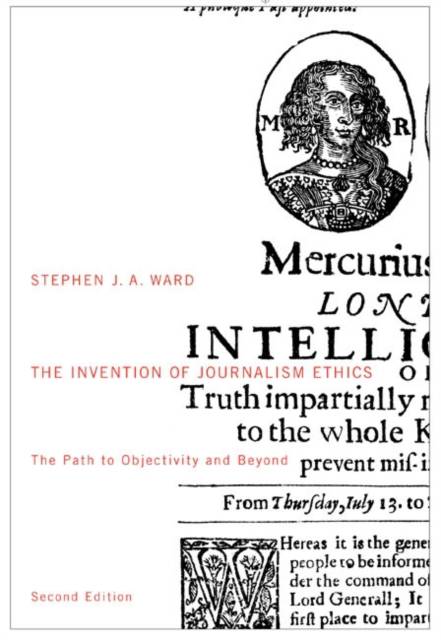
Je cadeautjes zeker op tijd in huis hebben voor de feestdagen? Kom langs in onze winkels en vind het perfecte geschenk!
- Afhalen na 1 uur in een winkel met voorraad
- Gratis thuislevering in België vanaf € 30
- Ruim aanbod met 7 miljoen producten
Je cadeautjes zeker op tijd in huis hebben voor de feestdagen? Kom langs in onze winkels en vind het perfecte geschenk!
- Afhalen na 1 uur in een winkel met voorraad
- Gratis thuislevering in België vanaf € 30
- Ruim aanbod met 7 miljoen producten
Zoeken
The Invention of Journalism Ethics, Second Edition
The Path to Objectivity and Beyondvolume 38
Stephen J a Ward
€ 206,95
+ 413 punten
Uitvoering
Omschrijving
Does objectivity exist in the news media? In The Invention of Journalism Ethics, Stephen Ward argues that given the current emphasis on interpretation, analysis, and perspective, journalists and the public need a new theory of objectivity. He explores the varied ethical assertions of journalists over the past few centuries, focusing on the changing relationship between journalist and audience. This historical analysis leads to an innovative theory of pragmatic objectivity that enables journalists and the public to recognize and avoid biased and unbalanced reporting. Ward convincingly demonstrates that journalistic objectivity is not a set of absolute standards but the same fallible but reasonable objectivity used for making decisions in other professions and public institutions. Considered a classic in the field since its first publication in 2004, this second edition includes new chapters that bring the book up to speed with journalism ethics in the twenty-first century by focusing on the growing dominance of online journalism and calling for a radical approach to journalism ethics reform. Ward also addresses important developments that have occurred in the last decade, including the emergence of digital journalism ethics and global journalism ethics.
Specificaties
Betrokkenen
- Auteur(s):
- Uitgeverij:
Inhoud
- Aantal bladzijden:
- 448
- Taal:
- Engels
- Reeks:
- Reeksnummer:
- nr. 38
Eigenschappen
- Productcode (EAN):
- 9780773546301
- Verschijningsdatum:
- 30/09/2015
- Uitvoering:
- Hardcover
- Formaat:
- Genaaid
- Afmetingen:
- 160 mm x 231 mm
- Gewicht:
- 771 g

Alleen bij Standaard Boekhandel
+ 413 punten op je klantenkaart van Standaard Boekhandel
Beoordelingen
We publiceren alleen reviews die voldoen aan de voorwaarden voor reviews. Bekijk onze voorwaarden voor reviews.









